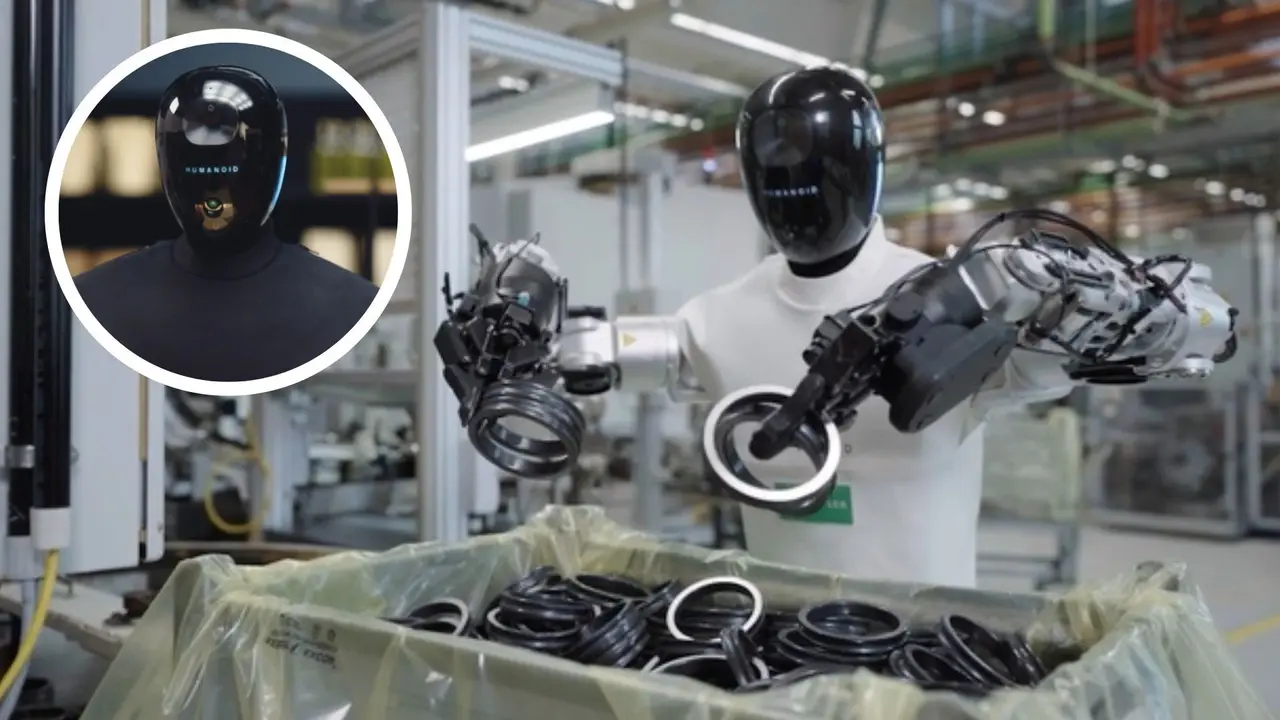Mistral AI Unveils Devstral: A Powerful Open-Source Coding Model for Software Engineering Agents
4 Sources
4 Sources
[1]
Mistral's new Devstral AI model was designed for coding
AI startup Mistral on Wednesday announced a new AI model focused on coding: Devstral. Devstral, which Mistral says was developed in partnership with AI company All Hands AI, is openly available under an Apache 2.0 license, meaning it can be used commercially without restriction. Mistral claims that Devstral outperforms other open models like Google's Gemma 3 27B and Chinese AI lab DeepSeek's V3 on SWE-Bench Verified, a benchmark measuring coding skills. "Devstral excels at using tools to explore codebases, editing multiple files and power[ing] software engineering agents," writes Mistral in a blog post provided to TechCrunch. "[I]t runs over code agent scaffolds such as OpenHands or SWE-Agent, which define the interface between the model and the test cases [...] Devstral is light enough to run on a single [Nvidia] RTX 4090 or a Mac with 32GB RAM, making it an ideal choice for local deployment and on-device use." Devstral arrives as AI coding assistants -- and the models powering them -- grow increasingly popular. Just last month, JetBrains, the company behind a range of popular app development tools, released its first "open" AI model for coding. In recent months, AI outfits including Google, Windsurf, and OpenAI have also unveiled models, both openly available and proprietary, optimized for programming tasks. AI models still struggle to code quality software -- code-generating AI tends to introduce security vulnerabilities and errors, owing to weaknesses in areas like the ability to understand programming logic. Yet their promise to boost coding productivity is pushing companies -- and developers -- to rapidly adopt them. One recent poll found that 76% of devs used or were planning to use AI tools in their development processes last year. Mistral previously waded into the assistive programming space with Codestral, a generative model for code. But Codestral wasn't released under a license that permitted devs to use the model for commercial applications; its license explicitly banned "any internal usage by employees in the context of [a] company's business activities." Devstral, which Mistral is calling a "research preview," can be downloaded from AI development platforms including Hugging Face and also tapped through Mistral's API. It's priced at $0.1 per million input tokens and $0.3 per million output tokens, tokens being the raw bits of data that AI models work with. (A million tokens is equivalent to about 750,000 words, or roughly 163,000 words longer than "War and Peace.") Mistral says it's "hard at work building a larger agentic coding model that will be available in the coming weeks." Devstral isn't a small model per se, but it's on the smaller side at 24 billion parameters. (Parameters roughly correspond to a model's problem-solving skills, and models with more parameters generally perform better than those with fewer parameters.) Mistral, founded in 2023, is a frontier model lab, aiming to build a range of AI-powered services, including a chatbot platform, Le Chat, and mobile apps. It's backed by VCs including General Catalyst, and has raised over €1.1 billion (roughly $1.24 billion) to date. Mistral's customers include BNP Paribas, AXA, and Mirakl. Devstral is Mistral's third product launch this month. A few weeks ago, Mistral launched Mistral Medium 3, an efficient general-purpose model. Around the same time, the company rolled out Le Chat Enterprise, a corporate-focused chatbot service that offers tools like an AI "agent" builder and integrates Mistral's models with third-party services like Gmail, Google Drive, and SharePoint.
[2]
Mitral AI launches Devstral, powerful new open source SWE agent model that runs on laptops
Join our daily and weekly newsletters for the latest updates and exclusive content on industry-leading AI coverage. Learn More Well-funded French AI model maker Mistral has consistently punched above its weight since its debut of its own powerful open source foundation model in fall 2023 -- but it took some criticism among developers on X recently for its last release of a proprietary large language model (LLM) called Medium 3, which some viewed as betraying its open source roots and commitment. (Recall that open source models can be taken and adapted freely by anyone, while proprietary models must be paid for and their customization options are more limited and controlled by the model maker.) But today, Mistral is back and recommitting to the open source AI community, and AI-powered software development in particular, in a big way. The company has teamed up with open source startup All Hands AI, creators of Open Devin to release Devstral, a new open-source language model with 24-million parameters -- much smaller than many rivals whose models are in the multibillions, and thus, requiring far less computing power such that it can be run on a laptop -- purpose-built for agentic AI development. Unlike traditional LLMs designed for short-form code completions or isolated function generation, Devstral is optimized to act as a full software engineering agent -- capable of understanding context across files, navigating large codebases, and resolving real-world issues. The model is now freely available under the permissive Apache 2.0 license, allowing developers and organizations to deploy, modify, and commercialize it without restriction. "We wanted to release something open for the developer and enthusiast community -- something they can run locally, privately, and modify as they want," said Baptiste Rozière, research scientist at Mistral AI. "It's released under Apache 2.0, so people can do basically whatever they want with it." Building upon Codestral Devstral represents the next step in Mistral's growing portfolio of code-focused models, following its earlier success with the Codestral series. First launched in May 2024, Codestral was Mistral's initial foray into specialized coding LLMs. It was a 22-billion-parameter model trained to handle over 80 programming languages and became well-regarded for its performance in code generation and completion tasks. The model's popularity and technical strengths led to rapid iterations, including the launch of Codestral-Mamba -- an enhanced version built on Mamba architecture -- and most recently, Codestral 25.01, which has found adoption among IDE plugin developers and enterprise users looking for high-frequency, low-latency models. The momentum around Codestral helped establish Mistral as a key player in the coding-model ecosystem and laid the foundation for the development of Devstral -- extending from fast completions to full-agent task execution. Outperforms larger models on top SWE benchmarks Devstral achieves a score of 46.8% on the SWE-Bench Verified benchmark, a dataset of 500 real-world GitHub issues manually validated for correctness. This places it ahead of all previously released open-source models and ahead of several closed models, including GPT-4.1-mini, which it surpasses by over 20 percentage points. "Right now, it's by pretty far the best open model for SWE-bench verified and for code agents," said Rozière. "And it's also a very small model -- only 24 billion parameters -- that you can run locally, even on a MacBook." "Compare Devstral to closed and open models evaluated under any scaffold -- we find that Devstral achieves substantially better performance than a number of closed-source alternatives," wrote Sophia Yang, Ph.D., Head of Developer Relations at Mistral AI, on the social network X. "For example, Devstral surpasses the recent GPT-4.1-mini by over 20%." The model is finetuned from Mistral Small 3.1 using reinforcement learning and safety alignment techniques. "We started from a very good base model with Mistral's small tree control, which already performs well," Rozière said. "Then we specialized it using safety and reinforcement learning techniques to improve its performance on SWE-bench." Built for the agentic era Devstral is not just a code generation model -- it is optimized for integration into agentic frameworks like OpenHands, SWE-Agent, and OpenDevin. These scaffolds allow Devstral to interact with test cases, navigate source files, and execute multi-step tasks across projects. "We're releasing it with OpenDevin, which is a scaffolding for code agents," said Rozière. "We build the model, and they build the scaffolding -- a set of prompts and tools that the model can use, like a backend for the developer model." To ensure robustness, the model was tested across diverse repositories and internal workflows. "We were very careful not to overfit to SWE-bench," Rozière explained. "We trained only on data from repositories that are not cloned from the SWE-bench set and validated the model across different frameworks." He added that Mistral dogfooded Devstral internally to ensure it generalizes well to new, unseen tasks. Efficient deployment with permissive open license -- even for enterprise and commercial projects Devstral's compact 24B architecture makes it practical for developers to run locally, whether on a single RTX 4090 GPU or a Mac with 32GB of RAM. This makes it appealing for privacy-sensitive use cases and edge deployments. "This model is targeted toward enthusiasts and people who care about running something locally and privately -- something they can use even on a plane with no internet," Rozière said. Beyond performance and portability, its Apache 2.0 license offers a compelling proposition for commercial applications. The license permits unrestricted use, adaptation, and distribution -- even for proprietary products -- making Devstral a low-friction option for enterprise adoption. Detailed specifications and usage instructions are available on the Devstral-Small-2505 model card on Hugging Face. The model features a 128,000 token context window and uses the Tekken tokenizer with a 131,000 vocabulary. It supports deployment through all major open source platforms including Hugging Face, Ollama, Kaggle, LM Studio, and Unsloth, and works well with libraries such as vLLM, Transformers, and Mistral Inference. Available via API or locally Devstral is accessible via Mistral's Le Platforme API (application programming interface) under the model name devstral-small-2505, with pricing set at $0.10 per million input tokens and $0.30 per million output tokens. For those deploying locally, support for frameworks like OpenHands enables integration with codebases and agentic workflows out of the box. Rozière shared how he incorporates Devstral in his own development flow: "I use it myself. You can ask it to do small tasks, like updating the version of a package or modifying a tokenization script. It finds the right place in your code and makes the changes. It's really nice to use." More to come While Devstral is currently released as a research preview, Mistral and All Hands AI are already working on a larger follow-up model with expanded capabilities. "There will always be a gap between smaller and larger models," Rozière noted, "but we've gone a long way in bridging that. These models already perform very strongly, even compared to some larger competitors." With its performance benchmarks, permissive license, and agentic design, Devstral positions itself not just as a code generation tool -- but as a foundational model for building autonomous software engineering systems.
[3]
Mistral AI launches Devstral, powerful new open source SWE agent model that runs on laptops
Join our daily and weekly newsletters for the latest updates and exclusive content on industry-leading AI coverage. Learn More Well-funded French AI model maker Mistral has consistently punched above its weight since its debut of its own powerful open source foundation model in fall 2023 -- but it took some criticism among developers on X recently for its last release of a proprietary large language model (LLM) called Medium 3, which some viewed as betraying its open source roots and commitment. (Recall that open source models can be taken and adapted freely by anyone, while proprietary models must be paid for and their customization options are more limited and controlled by the model maker.) But today, Mistral is back and recommitting to the open source AI community, and AI-powered software development in particular, in a big way. The company has teamed up with open source startup All Hands AI, creators of Open Devin to release Devstral, a new open-source language model with 24-million parameters -- much smaller than many rivals whose models are in the multibillions, and thus, requiring far less computing power such that it can be run on a laptop -- purpose-built for agentic AI development. Unlike traditional LLMs designed for short-form code completions or isolated function generation, Devstral is optimized to act as a full software engineering agent -- capable of understanding context across files, navigating large codebases, and resolving real-world issues. The model is now freely available under the permissive Apache 2.0 license, allowing developers and organizations to deploy, modify, and commercialize it without restriction. "We wanted to release something open for the developer and enthusiast community -- something they can run locally, privately, and modify as they want," said Baptiste Rozière, research scientist at Mistral AI. "It's released under Apache 2.0, so people can do basically whatever they want with it." Building upon Codestral Devstral represents the next step in Mistral's growing portfolio of code-focused models, following its earlier success with the Codestral series. First launched in May 2024, Codestral was Mistral's initial foray into specialized coding LLMs. It was a 22-billion-parameter model trained to handle over 80 programming languages and became well-regarded for its performance in code generation and completion tasks. The model's popularity and technical strengths led to rapid iterations, including the launch of Codestral-Mamba -- an enhanced version built on Mamba architecture -- and most recently, Codestral 25.01, which has found adoption among IDE plugin developers and enterprise users looking for high-frequency, low-latency models. The momentum around Codestral helped establish Mistral as a key player in the coding-model ecosystem and laid the foundation for the development of Devstral -- extending from fast completions to full-agent task execution. Outperforms larger models on top SWE benchmarks Devstral achieves a score of 46.8% on the SWE-Bench Verified benchmark, a dataset of 500 real-world GitHub issues manually validated for correctness. This places it ahead of all previously released open-source models and ahead of several closed models, including GPT-4.1-mini, which it surpasses by over 20 percentage points. "Right now, it's by pretty far the best open model for SWE-bench verified and for code agents," said Rozière. "And it's also a very small model -- only 24 billion parameters -- that you can run locally, even on a MacBook." "Compare Devstral to closed and open models evaluated under any scaffold -- we find that Devstral achieves substantially better performance than a number of closed-source alternatives," wrote Sophia Yang, Ph.D., Head of Developer Relations at Mistral AI, on the social network X. "For example, Devstral surpasses the recent GPT-4.1-mini by over 20%." The model is finetuned from Mistral Small 3.1 using reinforcement learning and safety alignment techniques. "We started from a very good base model with Mistral's small tree control, which already performs well," Rozière said. "Then we specialized it using safety and reinforcement learning techniques to improve its performance on SWE-bench." Built for the agentic era Devstral is not just a code generation model -- it is optimized for integration into agentic frameworks like OpenHands, SWE-Agent, and OpenDevin. These scaffolds allow Devstral to interact with test cases, navigate source files, and execute multi-step tasks across projects. "We're releasing it with OpenDevin, which is a scaffolding for code agents," said Rozière. "We build the model, and they build the scaffolding -- a set of prompts and tools that the model can use, like a backend for the developer model." To ensure robustness, the model was tested across diverse repositories and internal workflows. "We were very careful not to overfit to SWE-bench," Rozière explained. "We trained only on data from repositories that are not cloned from the SWE-bench set and validated the model across different frameworks." He added that Mistral dogfooded Devstral internally to ensure it generalizes well to new, unseen tasks. Efficient deployment with permissive open license -- even for enterprise and commercial projects Devstral's compact 24B architecture makes it practical for developers to run locally, whether on a single RTX 4090 GPU or a Mac with 32GB of RAM. This makes it appealing for privacy-sensitive use cases and edge deployments. "This model is targeted toward enthusiasts and people who care about running something locally and privately -- something they can use even on a plane with no internet," Rozière said. Beyond performance and portability, its Apache 2.0 license offers a compelling proposition for commercial applications. The license permits unrestricted use, adaptation, and distribution -- even for proprietary products -- making Devstral a low-friction option for enterprise adoption. Detailed specifications and usage instructions are available on the Devstral-Small-2505 model card on Hugging Face. The model features a 128,000 token context window and uses the Tekken tokenizer with a 131,000 vocabulary. It supports deployment through all major open source platforms including Hugging Face, Ollama, Kaggle, LM Studio, and Unsloth, and works well with libraries such as vLLM, Transformers, and Mistral Inference. Available via API or locally Devstral is accessible via Mistral's Le Platforme API (application programming interface) under the model name devstral-small-2505, with pricing set at $0.10 per million input tokens and $0.30 per million output tokens. For those deploying locally, support for frameworks like OpenHands enables integration with codebases and agentic workflows out of the box. Rozière shared how he incorporates Devstral in his own development flow: "I use it myself. You can ask it to do small tasks, like updating the version of a package or modifying a tokenization script. It finds the right place in your code and makes the changes. It's really nice to use." More to come While Devstral is currently released as a research preview, Mistral and All Hands AI are already working on a larger follow-up model with expanded capabilities. "There will always be a gap between smaller and larger models," Rozière noted, "but we've gone a long way in bridging that. These models already perform very strongly, even compared to some larger competitors." With its performance benchmarks, permissive license, and agentic design, Devstral positions itself not just as a code generation tool -- but as a foundational model for building autonomous software engineering systems.
[4]
Mistral's New Model Is Trained to Solve 'Real GitHub Issues' | AIM
It is called as Devstral, and it outperformed several other open-source models on the SWE-Bench verified benchmark. Mistral, the French AI startup, released a new open-source model called Devstral on Wednesday. The model was built in collaboration with All Hands AI, a startup building open-source software development agents. Devstral is trained to excel at coding-related tasks. On the SWE-Bench Verified benchmark, which evaluates AI models on real-world software issues, Devstral scored 46.8%, outperforming other open-source AI models. It outperforms OpenAI's GPT-4.1 Mini and Claude 3.5 Haiku. Mistral said that the model is trained to solve real GitHub issues and overcomes the challenges of typical large language models, which are excellent at code completion or atomic coding tasks, but struggle to solve real-world engineering problems. Mistral recently announced a strategic partnership with G42, an Abu Dhabi-based technology group. The partnership will focus on co-developing next-generation AI platforms and infrastructure. The partnership encompasses the AI value chain, ranging from training AI models and developing AI agents and infrastructure to creating industry-specific applications throughout Europe, the Middle East, and the Global South. Besides, Mistral will also explore collaborations with the Mohamed bin Zayed University of Artificial Intelligence (MBZUAI), the world's first AI university based in Abu Dhabi, across research and development in foundation models, talent development, and AI research. A few weeks ago, the company unveiled Mistral Medium 3, which focuses on cost-effectiveness while outperforming competing models like Meta's Llama 4 Maverick in benchmark tests. The company stated that it is designed for enterprise deployment and excels in coding, STEM, and multimodal tasks. It achieves over 90% of Claude Sonnet 3.7's benchmark scores at significantly lower pricing -- $0.40 per million tokens for input and $2 for output.
Share
Share
Copy Link
Mistral AI, in collaboration with All Hands AI, launches Devstral, an open-source AI model designed for coding and software engineering tasks. The model outperforms larger competitors and can run on standard laptops.
Mistral AI Introduces Devstral: A Game-Changing Coding Model
French AI startup Mistral AI has unveiled Devstral, a new open-source language model specifically designed for coding and software engineering tasks. Developed in collaboration with All Hands AI, Devstral represents a significant advancement in AI-powered software development
1
.
Source: AIM
Powerful Performance in a Compact Package
Despite its relatively small size of 24 billion parameters, Devstral has demonstrated impressive capabilities:
- Outperforms larger models: Devstral achieved a score of 46.8% on the SWE-Bench Verified benchmark, surpassing other open-source models and even some closed-source alternatives like GPT-4
2
. - Efficient deployment: The model can run on a single NVIDIA RTX 4090 GPU or a Mac with 32GB RAM, making it suitable for local and on-device use
1
. - Wide language support: Building on Mistral's earlier Codestral model, Devstral is trained to handle over 80 programming languages
3
.
Designed for Real-World Software Engineering

Source: VentureBeat
Devstral goes beyond simple code completion tasks:
- Full software engineering agent: The model is optimized to understand context across files, navigate large codebases, and resolve real-world issues
2
. - Integration with agentic frameworks: Devstral works seamlessly with scaffolds like OpenHands, SWE-Agent, and OpenDevin, allowing for more complex interactions and multi-step tasks
3
. - Trained on real GitHub issues: This approach helps the model tackle authentic software engineering challenges
4
.
Related Stories
Open-Source and Commercial-Friendly
Mistral AI has made Devstral freely available under the Apache 2.0 license, allowing for unrestricted commercial use and modification
1
. This move aligns with the company's commitment to the open-source AI community and addresses recent criticisms regarding their proprietary releases2
.Mistral AI's Growing Influence
The release of Devstral follows a series of significant developments for Mistral AI:
- Strategic partnership: A recent collaboration with G42, an Abu Dhabi-based technology group, aims to develop next-generation AI platforms and infrastructure
4
. - Expanding product line: Devstral joins Mistral's portfolio, which includes the general-purpose Mistral Medium 3 and the enterprise-focused Le Chat Enterprise
1
. - Substantial funding: Mistral AI has raised over €1.1 billion (approximately $1.24 billion) to date, backed by investors like General Catalyst
1
.

Source: TechCrunch
As AI coding assistants gain popularity, with 76% of developers using or planning to use AI tools in their development processes, Devstral's release marks a significant step forward in accessible, powerful AI for software engineering
1
.References
Summarized by
Navi
[1]
[2]
[3]
Related Stories
Mistral AI launches Devstral 2 vibe coding model with 72.2% SWE-bench score and CLI tool
10 Dec 2025•Technology

Mistral AI Challenges Tech Giants with Enterprise-Focused Coding Assistant
05 Jun 2025•Technology

Mistral Small 3: Compact Open-Source AI Model Challenges Industry Giants
31 Jan 2025•Technology

Recent Highlights
1
SpaceX acquires xAI as Elon Musk bets big on 1 million satellite constellation for orbital AI
Technology

2
French Police Raid X Office as Grok Investigation Expands to Include Holocaust Denial Claims
Policy and Regulation

3
UNICEF Demands Global Crackdown on AI-Generated Child Abuse as 1.2 Million Kids Victimized
Policy and Regulation





